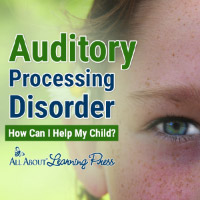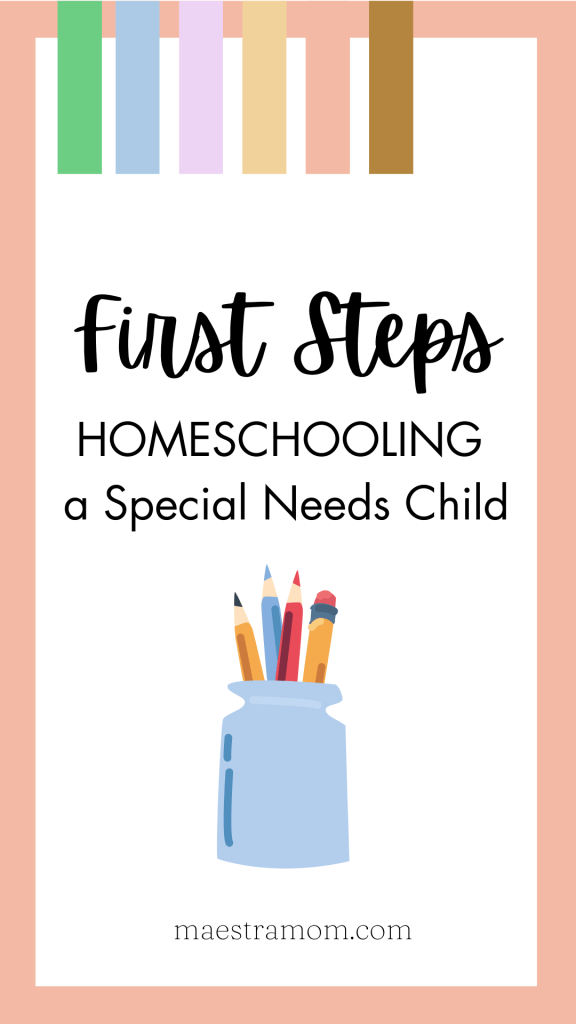Do you suspect you might be homeschooling a special needs child? This article will give you the first steps to get started if you are beginning to wonder if your son or daughter may have special needs or a learning disability and you are homeschooling.
What if I Suspect Special Needs?
When you first begin to suspect your child may have learning challenges, it can be quite scary. If you’re homeschooling, one of your first questions is probably – where do I go for help? Fortunately, you are not alone!
These are five tried-and-true places to begin to reach out if you suspect you are homeschooling a special needs child.
1. Chat with Other Parents
A good first step if you have concerns about your child is to spot-check with some other parents you trust. It can be very challenging to hear negative things about your child from other parents but try to be open to concerns that your child might be behind academically or socially.
Other parents may see something you are missing in your own child’s behavior or academics, especially in settings such as Bible class, homeschool co-op classes, or extra-curricular activities. Ask them for an honest opinion of how your child is doing. If several mention similar concerns or observations, it’s probably something to which you should listen.
Don’t forget, other parents can be a wealth of information, too, and can lead you to the resources you need. Chances are you will find someone who has walked this same road before and can offer support.
>>> Check out this Kindergarten Readiness Assessment to see if your 4 or 5 year old is on track!
2. Observe Other Kids
Every child is unique, so there’s much talk about how we should never compare one to another. However, most children generally grow and develop along a general continuum. In other words, most all 6-year-olds will share many characteristics in common.
So how does your son or daughter generally compare to other children? If you suspect your homeschooling child may have special needs, look for opportunities to observe him with other kids his age. Get involved with activities within the community like church or extra-curricular activities.
Does your child seem on-pace with his peers? How does she interact with others? What do you notice about your child compared to the other children?

3. Talk to Your Pediatrician
If you suspect that your child has a learning disability, seek help as quickly as possible. Your child’s pediatrician is another good first step.
When a child attends public schools, he is automatically screened for hearing and vision difficulties and monitored for any learning disabilities or speech concerns. Without the expertise of specialists, it may sometimes take homeschooling parents longer to notice that a child is struggling or not progressing according to schedule. A pediatrician can offer you their insight about your child’s development and connect you with the resources you need.
Ask your pediatrician to conduct a simple vision/hearing screening on your child at their yearly well-child check-up, even if you do not have any concerns. A vision and hearing screening can rule out problems or pinpoint an issue. If the child fails this screening, it’s time to head to the eye doctor or ENT.
Talk to your pediatrician about any developmental, academic, or behavior concerns, too, especially if you notice that your child does not act the same as other children of the same age or engages in odd, repetitive behaviors.
Your pediatrician can also screen your son or daughter for ADHD, depression, and other challenges.
>>> READ: Homeschooling with Dyslexia
4. Contact the Local Public School
Even though you are a homeschool family, the local public school can be a great resource. This doesn’t mean you have to stop homeschooling and enroll your child in public school.
Homeschool students are eligible to receive special education assessments for free from diagnosticians within public schools. It’s easy! Simply call the local school your child would normally attend and ask that your child be evaluated. Just be forewarned, this is not a quick process! A special needs evaluation often requires months of paperwork and assessments.
Public schools will also screen homeschool students for speech disabilities and dyslexia, too. If your child qualifies as having a speech impairment or a disability, the school may offer services such as speech therapy, occupational therapy, or other services to your child for free. These may take place during the school day but usually happen with the therapist 1-on-1 outside of the classroom setting – and you can continue homeschooling your special needs child if that is what you determine to be in your child’s best interest.

5. Call a Private Diagnostician
You may also be able to contact private companies that will evaluate your child, although you will probably have to pay for these services. Private diagnosticians can evaluate everything from dyslexia to learning disabilities and will also provide you with additional information about next steps.
Before reaching out for assistance, you can also administer at home a popular standardized test known as the Brigance Diagnostic Inventory that evaluates a child’s whole development. This is the test diagnosticians may administer at the local public school district but is also available for home administration. The Yellow Brigance is for birth through age 7. The Green Brigance is for school aged children in grades pre-k to 9th and there is a blue version for middle school and high school students.
If you conduct a home evaluation and have concerns about the results, it is time to get a specialist involved.

First Steps for Homeschooling a Special Needs Child
When in doubt, always reach out for help and have a specialist conduct an evaluation. We want to give our children all the help they need to succeed!
After speaking with other parents, observing your child with peers, consulting a pediatrician, and asking for an evaluation from the public school or a private diagnostician, you will know much more clearly the learning issues as hand.
Homeschooling your special needs child may still be a wonderful fit because you can tailor your child’s instruction to meet their abilities in a loving and nurturing home environment. Reaching out for help from these five sources will get you started!

